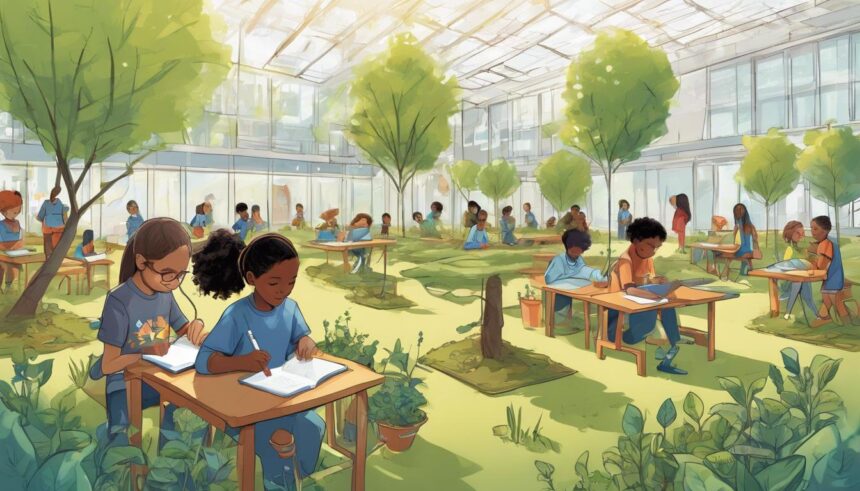As global communities mark Earth Day, Education Cannot Wait seeks $150 million to ensure educational continuity for 2 million children impacted by climate-related crises.
As we commemorate Earth Day, a pressing issue confronts the global community: the dire impact of climate change on education. Education Cannot Wait (ECW), a pivotal initiative for education in emergencies and protracted crises, has launched a compelling call to action to amass $150 million in funds to sustain educational efforts for 2 million children affected by climate-related disasters.
Compounded by ongoing conflicts and displacements, natural disasters like floods, droughts, and cyclones have ravaged communities and disrupted the educational journeys of millions of children. The significance of this issue is underscored by ECW’s data indicating that since 2020, an alarming 62 million crisis-affected children and adolescents have been impacted by climate disturbances.
The #RightHereRightNow campaign spearheaded by ECW aims not only to respond to immediate educational disruptions but also to integrate long-term sustainability and resilience against future climate shocks. This initiative underscores the comprehensive approach needed to tackle the dual challenges of environmental degradation and educational disruption. The correlation between education and environmental preservation is compelling, with education playing a pivotal role in promoting sustainable practices and empowering future generations to engage in climate action.
From Pakistan to Chad to Haiti, ECW has been at the forefront of implementing innovative educational programs that illustrate the transformative power of integrating education with environmental and disaster resilience strategies. In Pakistan, for instance, after catastrophic floods decimated over 30,000 schools, ECW and its partners managed to provide over 100,000 children with access to education that also tackles sustainable livelihoods and disaster preparedness.
In Chad, the focus has been on constructing disaster-resilient classrooms to replace the vulnerable temporary structures prone to destruction by natural elements. Haiti, on the other hand, has seen investments in embedding emergency response techniques within the educational system to bolster community-wide resilience.
This Earth Day serves as a stark reminder that protecting our environment and ensuring education for the next generation are intertwined challenges that need unified solutions. Through comprehensive educational programs that incorporate climate resilience, we are not only preparing children to be future custodians of the planet but also ensuring that they are not left behind in the global dialogue on climate action.
Education Cannot Wait’s call for enhanced funding is not merely a request for assistance but a mandate for global cooperation, envisioning an education system that supports every child and simultaneously equips them to combat the environmental challenges of the future. By fostering an educated generation, we are enhancing their capacity to tackle the pressing environmental issues that threaten our collective future and elevate global efforts to meet the ambitions of agreements like the Paris Accord.
As advocates, supporters, and leaders rally behind Education Cannot Wait’s mission, the pathway to resilient, inclusive, and sustainable education becomes increasingly viable. Harnessing the power of education to combat environmental challenges is not just an investment in the future of the children; it’s an investment in the future of the planet itself.





